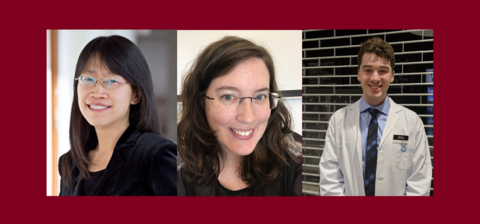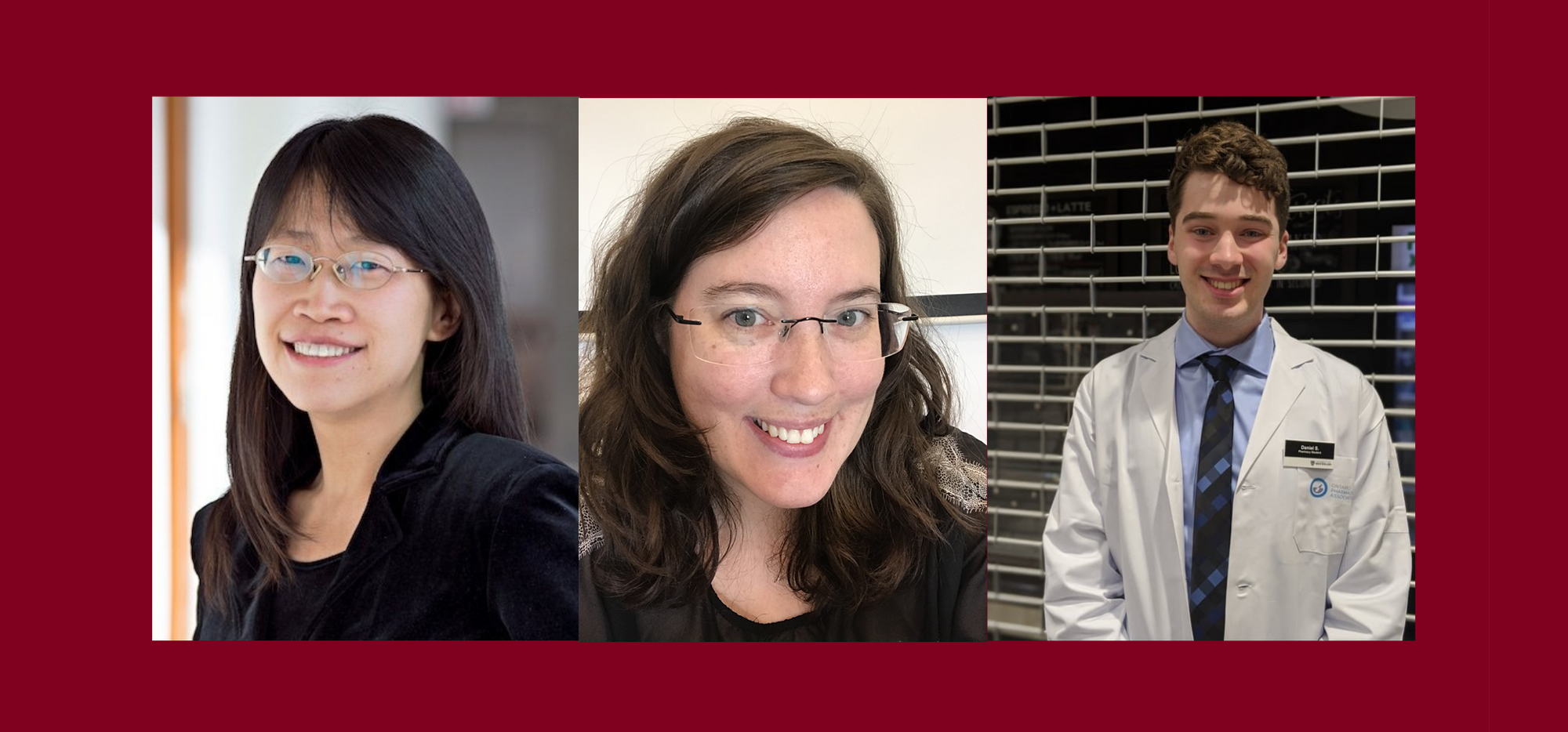
Reaching Rural: engaging the community to build vaccine confidence in southwestern Ontario

Led by Prof. Feng Chang, Reaching Rural is a project supported by the Gateway Centre for Excellence in Rural Health. Left to right: Feng Chang, Sarah Versteeg, Dan Stuckless.
Getting a COVID-19 vaccine has become a contentious issue across Canada.
For many, the decision comes down to vaccine confidence – how much trust does the person have in the efficacy and safety of the vaccine, the system and professionals that deliver it, and the people who make policies about vaccination.
Boosting vaccine confidence causes more Canadians to get vaccinated. But with the rampant spread of misinformation and the politicization of health information, building trust in the vaccine, the health-care system, and policymakers is no easy task.
Prof. Feng Chang and her team launched the Reaching Rural: Building Vaccine Confidence in Rural Southwestern Ontario project to meet this challenge. Chang is the Chair of Rural Pharmacy with the Gateway Centre of Excellence in Rural Health, a non-for-profit that organizes projects to improve health in southwestern Ontario.
Connecting with community
“We know that rural residents face additional barriers when making vaccine decisions,” Chang says. “In addition to concerns about the vaccines, rural residents face challenges conveniently accessing nearby health services. In rural environments, we also see that community members often play a key role in influencing and supporting each other through decision-making.”
The project was designed to meet community members where they are, considering the unique factors that lead to vaccine hesitancy in townships outside of large urban centers. Through review of literature and community conversations, Chang and her team learned that misinformation, competing priorities, a belief that COVID-19 vaccination is unnecessary, and a low perceived risk of the infection all contributed to the decision to not get vaccinated.
“We wanted to connect with community members to discuss their concerns and answer questions in inclusive and non-judgmental forums,” Chang says. “If we could provide accurate and unbiased information in plain language and address concerns, we hoped to boost vaccine confidence in the region.”
To achieve this, the project team delivered both open community forums and volunteer-facilitated virtual circles of support. They hosted two of these community forums, partnering with community leaders to present information, answer questions and share vaccination information resources. These talks were also shared on YouTube.
Virtual circles of support for vaccine decision-making
The Chang team has been working with communities in southwestern Ontario for years. In previous work to combat loneliness among rural residents, the team generated a successful method for facilitating volunteer-run conversation clubs. This program, called Lonely No More, gave participants the chance to self-identify as being impacted by social isolation, call in, and participate in virtual circles of support with other members of their community.
Given the success of Lonely No More, the team adapted the model to apply to the topic of vaccine confidence. Residents with questions could call in and discuss their concerns with trained volunteers, in a circle of their peers.
Partnering with community leaders and service providers, the project team recruited and trained volunteers from communities throughout southwestern Ontario to lead discussions. Despite growing tensions around vaccine mandates, protests, and stay-at-home orders, eight volunteer facilitated circles of support were offered over five months.
“We’d seen success with the open conversation-style sessions with Lonely No More,” says Sarah Versteeg, project lead in the Chang lab. “Our goal with Reaching Rural was to foster the same type of safe environment where people can bring their questions or concerns and get connected with their community.”
Concerns around the COVID-19 vaccine, COVID-19 related policies and sharing of creditable and local resources were the main topics of conversations. To build confidence, resiliency building questions were used to inquire around barriers or challenges to vaccination.
“We found that many of the reasons for vaccine hesitancy stem from misinformation,” says Dan Stuckless, a pharmacy student who supported the project and led conversations. “My role as coordinator was to help both volunteers and engaged community members explore their confidence in the COVID-19 vaccine and share creditable and reliable sources of COVID-19 information when asked.”
Participants in the first round of sessions said that they felt heard and respected, outcomes that the project team believes are integral to boosting vaccine confidence.
“Person-centered communication was key,” Stuckless says. “Through the volunteer education and experience provided through the project, I learned to actively listen to concerns and beliefs and to tap into the community’s strengths to create confidence and trust. It was also important that we ourselves were open and honest about the risks and benefits of the COVID-19 vaccine in a way that didn’t minimize the concerns of our rural hesitant neighbors.”
The project team plans to continue this work through another round of Connectedness Coaching in the summer. Their initiatives are supported by the Natural Sciences and Engineering Research Council of Canada.